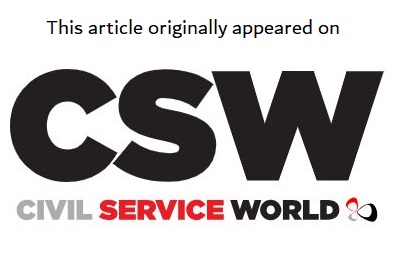Auditors have been unable to sign off on the latest version of the annual statement bringing together information from 10,000 public bodies in central and local government, NHS and education
The National Audit Office has refused to give an opinion on the latest Whole of Government Accounts for the first time ever because of major backlogs in local-authority audits and the subsequent lack of data.
Gareth Davies, head of the NAO, said he had disclaimed the WGA for 2022-23 – which brings together information on assets and liabilities from around 10,000 organisations, including central government departments, NHS bodies, councils and schools – because he had been “unable to obtain sufficient, appropriate evidence upon which to form an opinion”.
Out of 426 local authorities across England, just 43 – around 10% – submitted reliable data to the WGA. Just over half of those remaining submitted information that had not been audited, while 187 councils – 44% of the total – did not submit any data at all.
The disclaimed opinion follows three years on the trot in which Davies has qualified his opinion on the spending snapshot because of unreliable data. In 2021-22, 211 bodies – mostly English local authorities – submitted data from draft accounts because of audit delays. At the time, Davies said the “quality and completeness” of the data set was “being eroded” by missing and unaudited data.
In this year’s report, Davies said the missing data was “both material and pervasive to the 2022-23 financial statements”.
Davies said the audit backlog in local councils, which the Ministry of Housing, Communities and Local Government admitted earlier this year will take years to clear, was to blame for the incomplete data.
The move came more than a year after parliament’s Public Accounts Committee warned that local government audit backlogs were running at “unacceptably high” levels and were hindering accountability for the £100bn a year of taxpayers’ money spent by bodies such as councils, police and fire services.
PAC chair Sir Geoffrey Clifton-Brown said today that it was “deeply unsatisfactory” that the auditing failures had prevented Davies from issuing an opinion on the accounts.
Related content
- Whole of Government accounts dogged by missing data and IT delays, NAO finds
- Government study sheds light on departmental data-sharing difficulties
- Government pledges to ‘set requirement to share data across departments’
“If these issues are not addressed, it will become increasingly difficult to hold local leaders to account and more horror stories of failing councils will follow,” he said. “The government should press forward with its plans to permanently resolve the local audit crisis. The whole of government accounts must be made fit for purpose again.”
In a statement, Davies said: “It is clearly not acceptable that delays in audited accounts for English local authorities have made it impossible for me to provide assurance on the whole of government accounts for 2022-23. It is essential that the steps being taken by government to restore timely and robust local authority audited accounts are effective.”
The comptroller and auditor general’s report urged the Treasury to work with MHCLG “to ensure that the steps being taken to restore timely and robust audits of local authority accounts are effective”.
In August, local government minister Jim McMahon called the local audit system in England “broken” and set a backstop for completing 2022-23 audits of 13 December, with subsequent backstops for the next five years.
Davies also said the Treasury “must drive financial accountability within government to reduce the number of missing and unaudited entities”.
“This includes clearly outlining expectations and introducing consequences for failing to meet deadlines. This will ensure that the WGA is a more complete and accurate consolidation which can provide more insight and be better utilised as a fiscal tool,” he said.
‘Recovery timetable’ on track
While this week’s publication showed the Whole of Government Accounts remain dogged by delays, data gaps and unreliable data, Davies did strike a hopeful note on the timing of WGA publications. In recent years, the Treasury has failed to meet its target deadline of publishing them within 15 months of the end of the financial year.
The 2019-20 figures were not published until July 2022, owing to delays caused by the Covid pandemic and the subsequent redeployment of staff. Later that year, the PAC said the Treasury had been suffering from “optimism bias” in its updates on when the spending snapshot would be published.
The Treasury published the 2020-21 WGA in July 2023 and the 2021-22 snapshot this March, missing the deadlines it had told PAC it was aiming for by four months in both cases.
The Treasury now has a “viable” timetable to get back on track for the annual publication by releasing the 2023-24 WGA next July, Davies said.
A Treasury spokesperson said: “The whole of government accounts remains a valuable and reliable source of information for a wide range of stakeholders. We are working with local authorities to improve reporting and transparency and ensure the accounts are as detailed as possible, while making significant additional disclosures to the National Audit Office to address any missing data.”





